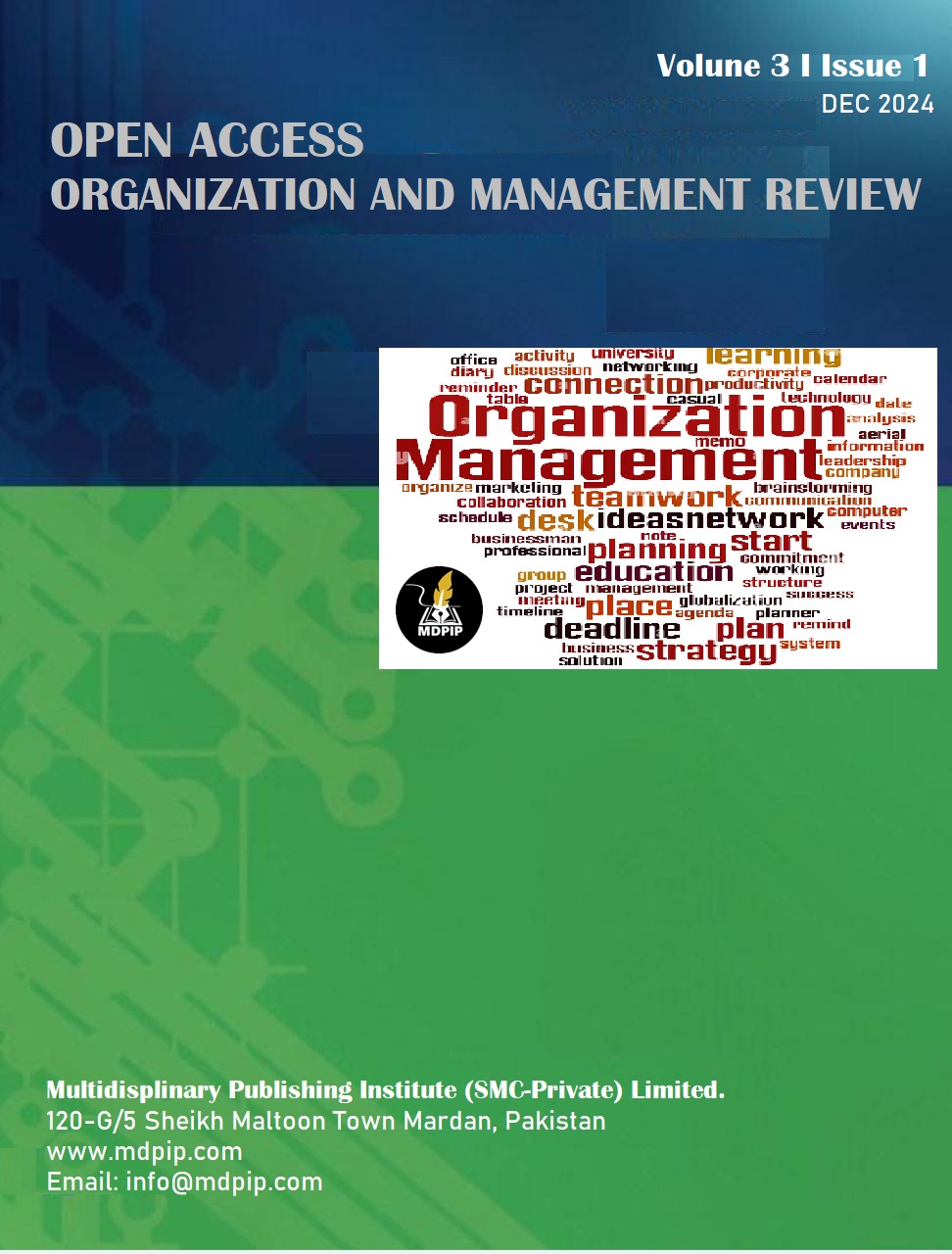Adoption of Artificial Intelligence in Accounting and its Impact on Business Performance: Oil and Gas Perspective
DOI:
https://doi.org/10.59644/oagmr.3(1).129Keywords:
Artificial Intelligence (AI), Machine Learning (ML), Data Analytics (DA), Robotic Process Automation (RPA), Business Performance.Abstract
The primary aim of the present study is to determine the use of AI's applications in accounting, its effect on business performance, and the adoption problems faced by the oil and gas industry. For the said purpose, a structured questionnaire was administered among Six hundred respondents of which 500 returned were used in analysis. The study found that the adoption of AI in accounting is emerging in the oil and gas industry and has a positive impact on business performance with the improvement of key performance indicators (KPIs). The study also measured the challenges faced by the said sector. It is observed that lack of expertise, increase of initial cost, and integration of AI in the existing system are the main hurdles. AI-driven explanations, comprising automation of routine tasks, predictive analytics, and enhanced information accuracy. AI in accounting has led to significant perfections in cost reduction, activities efficiency, and better decision-making processes. The current study highlighted the benefits of AI adoption in accounting, such as real-time financial reporting, risk mitigation, and compliance with regulatory standards. It also highlights the challenges faced by organizations, such as resistance to technological change, cybercrime concerns, and the need to educate the workforce and upgrade their capacity. A comprehensive analysis study determines that AI adoption in accounting not only rationalizes financial and non-financial management but also contributes to the strategic aspect of the oil and gas industry.






